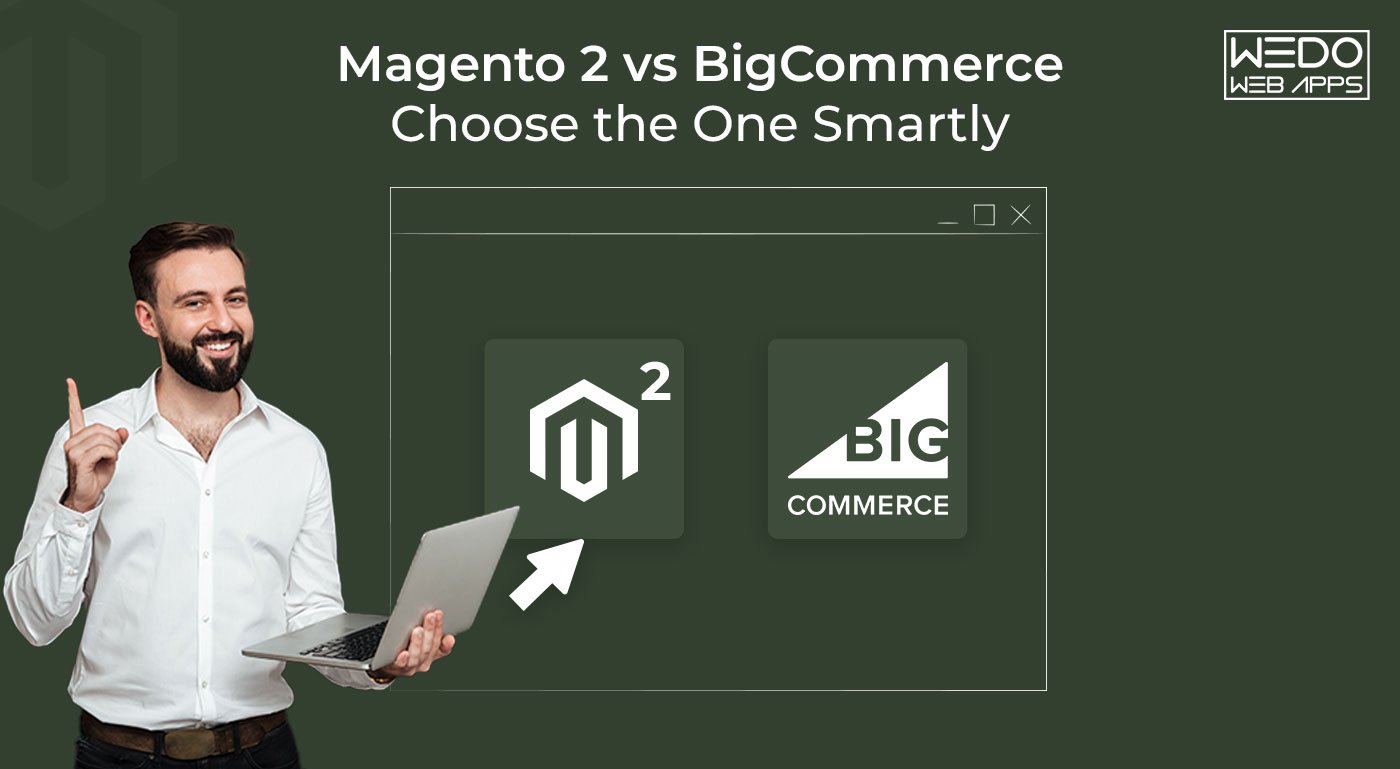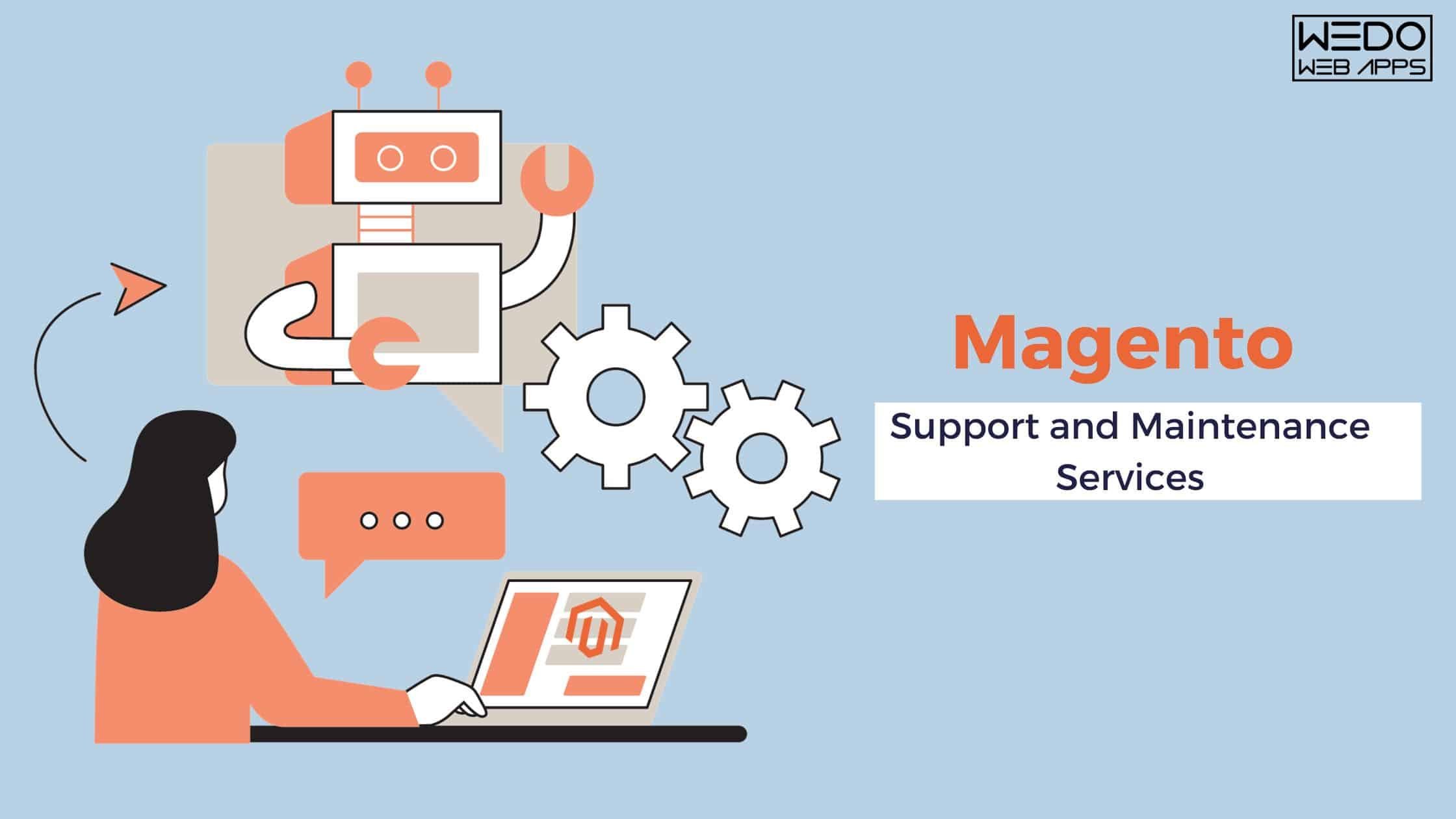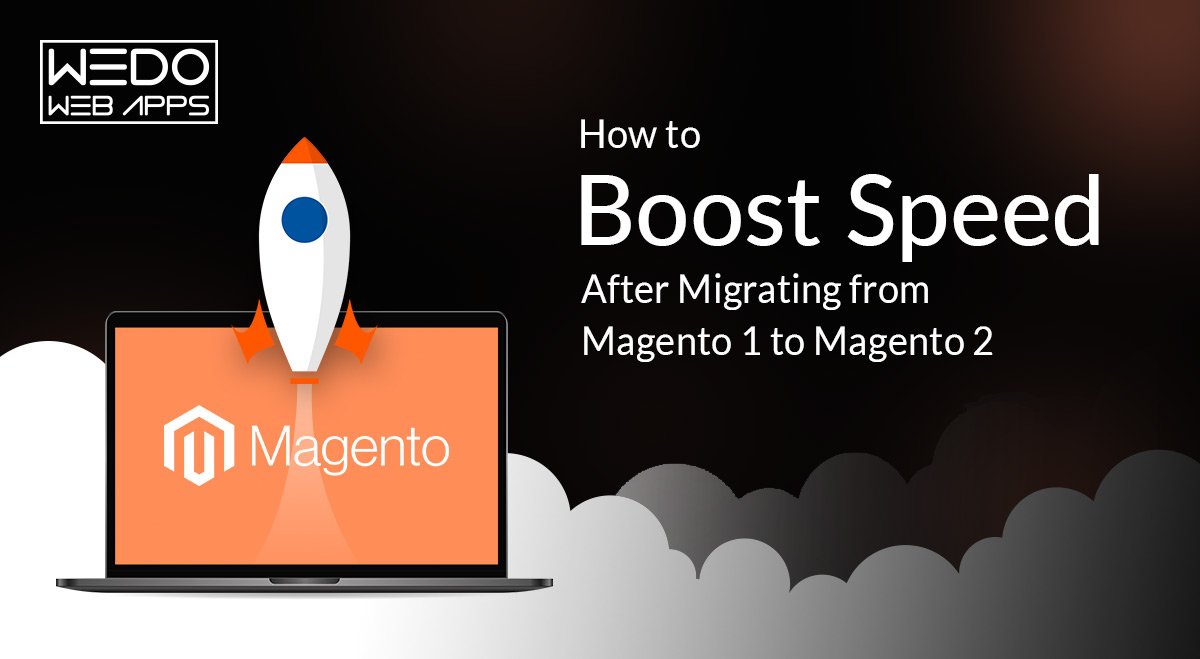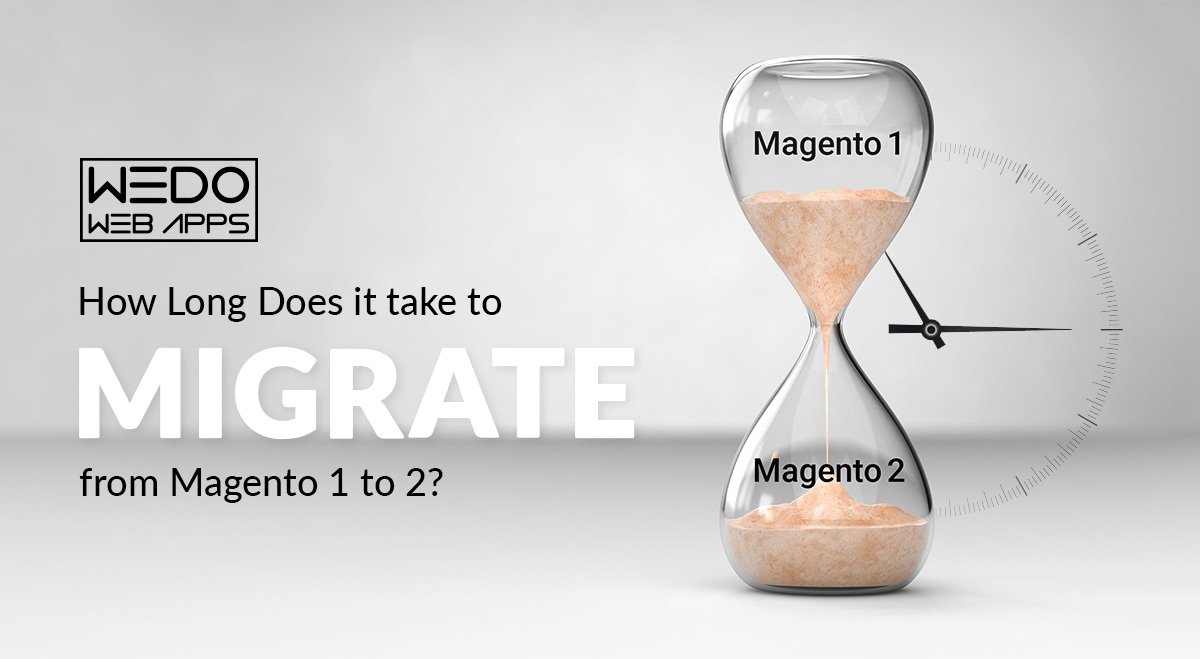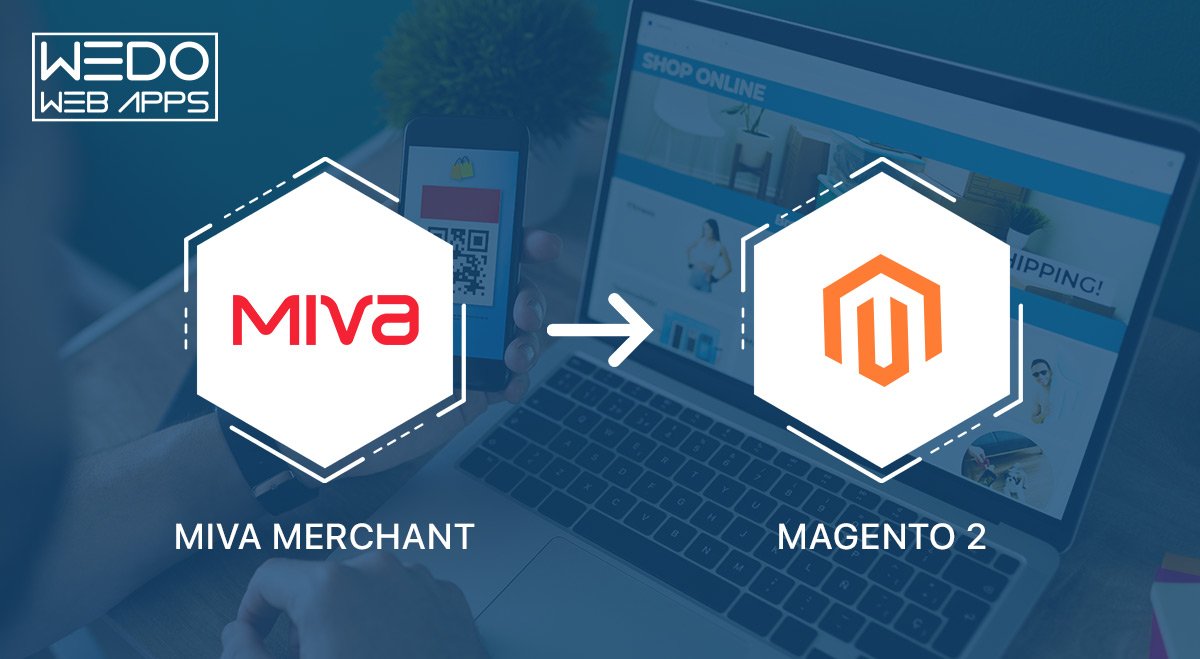Choosing an eCommerce platform has never been easy for store owners, especially newcomers to the online world. WooCommerce, Shopify, Magento, and BigCommerce are some of the big players in this industry that consistently rank at the top.
As you can see, Magento custom development has always been more popular than BigCommerce in the last five years. What is the reason for this? Now, if you’ll excuse me, I’d want you to follow me to Choosing an eCommerce platform has never been simple for store owners, especially newcomers. WooCommerce, Shopify, Magento, and BigCommerce are some of the big players in this industry that consistently rank at the top.
As a result, you must select the one that best suits your company. Some platforms are ideal for tiny businesses until they get adjusted to the world of online commerce, while others are only appropriate for huge firms, and yet others are appropriate for all online stores, regardless of size. Following that, we’ll go over two of the most popular systems, Magento 2 and BigCommerce, and explain the key distinctions between them so you can make the best choice.
Magento 2 is the most popular platform on the planet, and it benefits from the parent company’s reputation. It is used by some of the world’s greatest corporations, like Ford, Coca-Cola, and Nike, and is popular because of its ease of use and ability to be customised to the tiniest detail. It’s currently used by over 290,000 internet shops all around the world.
BigCommerce is a premium platform that includes hosting and other integrated services. This means you won’t have to worry about additional technical concerns or hosting: all you have to do is choose the bundle that best meets your needs and get started creating your dream store. Throughout 62,000 online stores use BigCommerce around the world. Confused, Right? We’ll help you with the major differences in both platforms that will help you choose the right platform for your business.
BigCommerce vs. Magento 2 – The Key Differences
1. Pricing
Pricing disparities between eCommerce platforms might play a crucial part in selecting a decision, depending on your budget.
BigCommerce Pricing
The pro plans are automatically enrolled in BigCommerce stores that sell more than 125,000 USD per year. The cost is also determined by the number of orders placed. Low-cost plans come with fewer features. The base subscription, for example, does not have an abandoned cart saver, fraud monitoring, product filtering, and other features that you may require.
For less than $400k in online sales, the pro plan starts at $299.95/mo, plus $150/mo for each subsequent $200k in online sales. Price plans also include variable credit card processing charges, so businesses must account for this expense in addition to the monthly fee for using the programme. Per card transaction, the normal plan is 2.9 percent + 0.3 USD. This transaction fee might easily add up if your store produces a lot of sales.
Magento Pricing
Magento, on the other hand, is a completely free platform to utilise. To get their eCommerce stores up and running, users only need to pay for hosting.
FREE Community Edition Hosting: $4-$100+ each month
Enterprise Edition: Customized pricing based on your business requirements.
Users of Magento should also consider hiring a developer to set up and manage their store.
Overall, running a Magento site is less expensive than maintaining a BigCommerce site. Magento costs can be considerably lowered when the software’s monthly pricing and transaction fees are considered.
2. Popularity
Each platform’s popularity among eCommerce businesses and the general public varies. Magento is used to create 8% of all eCommerce sites. Magento is used by 1.12 percent of the top million eCommerce sites, while BigCommerce is used by only 0.42 percent.
BigCommerce is used by fewer than 1% of the top 10,000 eCommerce sites, while Magento 2 is used by 1.51%. Magento has BigCommerce beat when it comes to successful, large-scale web stores.
3. Design
Another factor that contributes to an online store’s success is its design. Free design templates are available for both Magento and BigCommerce. BigCommerce offers seven free, attractive templates as well as a variety of paid templates ranging from $145 to $235. Because Magento is open-source, there are a plethora of additional themes accessible through Magento Connect and third-party websites.
Magento allows you to customise almost every aspect of the design. As a result, you’ll be able to design a store that appears precisely the way you want it to. Because BigCommerce only provides for a limited number of design options, the site you create will be far less customizable.
For a mobile-friendly purchasing experience, both have responsively designed themes. Because an increasing number of clients choose to purchase on their mobile devices, responsive design is a major bonus for both platforms.
4. SEO
SEO plays a very crucial role when it comes to gaining the trust of clients. SEO is the process of optimising a website in order to achieve a high search engine ranking. Magento 2 is the finest eCommerce platform for increasing SEO rankings, according to a rating of the best eCommerce systems. Using Magento 2 is a fantastic way to increase site traffic and visibility.
Read also: BigCommerce To Magento 2 Migration: How To Do It?
5. Ease of Use
Another element to consider when choosing a platform is how simple it is to use, especially for novices. BigCommerce is far more user-friendly than Magento for newcomers. Magento is well-suited to developers, but it can be difficult to navigate for newbies.
BigCommerce provides a simple, clean dashboard that allows users to quickly get their site up and running. When users initially open the dashboard, they are given step-by-step instructions. A website builder is included in the platform, allowing users to create and administer stores without having any prior knowledge of web development.
6. Community Support
Which eCommerce platform offers the best customer service? The success of internet stores is used to assess this.
BigCommerce is backed by BigCommerce Unversity, which helps users learn how to boost sales. Store owners may communicate with the Magento Community and even request support from the developers they purchase from, thanks to a large number of users. With the help of the supporting community, everything becomes a lot easier.
7. Hosting
Hosting is one of the most significant differences between these two shopping cart platforms. Magento is self-hosted, which means store owners will have to pay for hosting from a third-party provider. Companies like SiteGround and HostGator offer this for as cheap as $2.75 per month. However, it is an additional cost to consider and is best suited for expert eCommerce users.
BigCommerce, on the other hand, is a hosted solution, thus using it as a platform eliminates the need to find and pay for hosting. BigCommerce takes care of everything, making it an excellent solution for fledgling eCommerce businesses.
The cost of hosting can be factored into the total cost of Magento 2 website development and maintenance. But it’s not all bad news. Self-hosting allows business owners to pick and select whatever services they want in a hosting plan, as well as how much they want to pay for it.
Read also: Hire Dedicated BigCommerce Developers
8. Extensions
Extensions are digital tools that make your life a lot easier, thus we couldn’t help but talk about them. Again, Magento 2 comes out on top since you have access to both free and paid Magento 2 extensions, which will help you create the best online store possible. Hire Magento 2 developer who will help you integrate all the necessary extensions into your website.
Which is the Best – Magento 2 or BigCommerce?
When deciding between different e-commerce platforms for the development of your websites, such as Magento and BigCommerce, consider the features, cost, design, and other factors.
BigCommerce can be exactly what you’re searching for if you’re looking for a small to the mid-level solution. Magento, on the other hand, is your best pick if you’re looking for an enterprise solution or one with tremendous flexibility and the ability to adjust as your business expands. If you are looking for Magento Development services, WeDoWebApps has the best Magento Developers India. Get in touch and we will help you with your requirements be it design, development, migration, or even consultancy.

